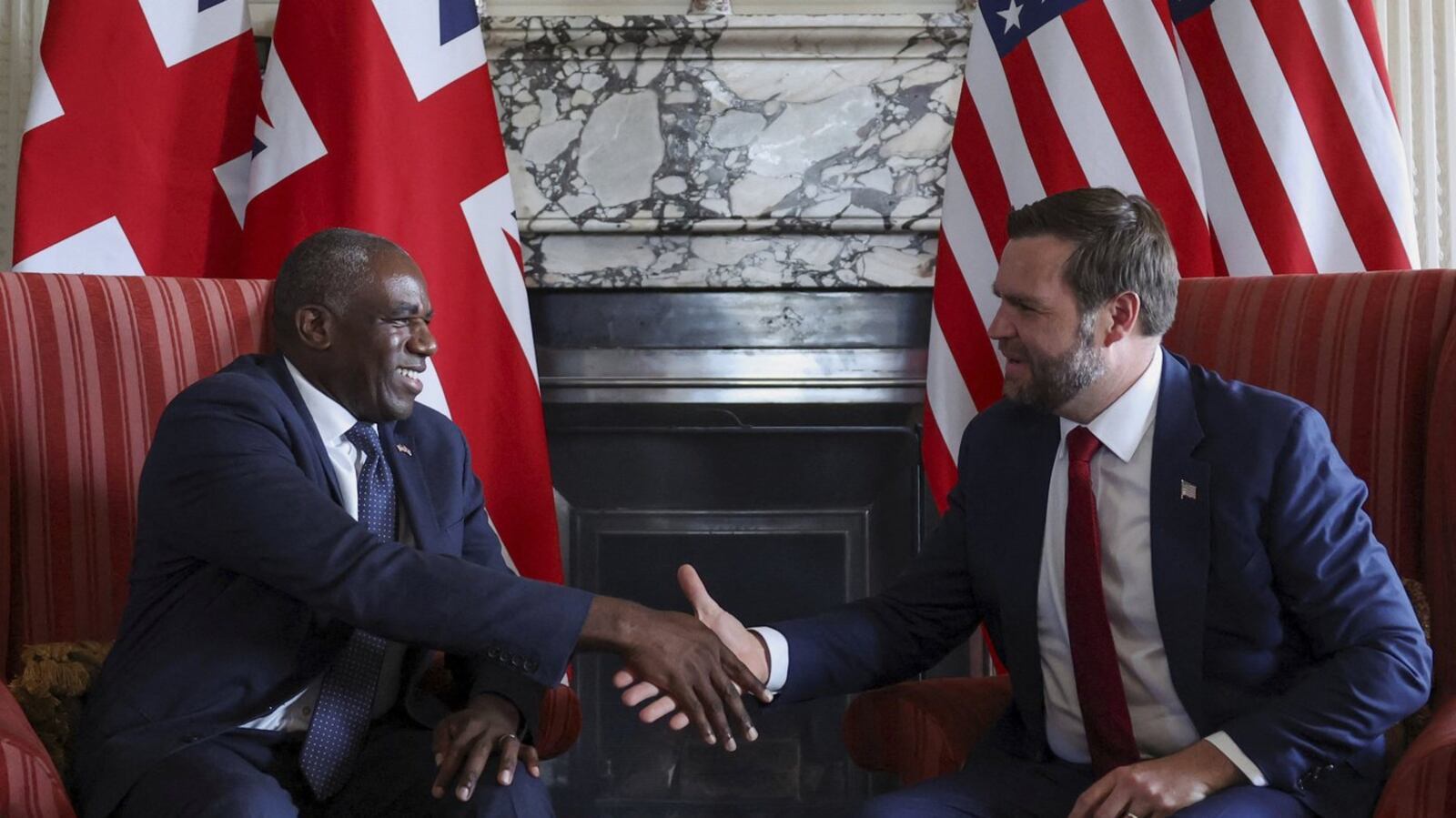U.S. Vice-President JD Vance stated Friday that the United States has “no plans” to recognize a Palestinian state, signaling a clear divergence from the U.K.’s position as the two allies continue diplomatic talks on global crises and trade.
Speaking alongside British Foreign Secretary David Lammy at the historic Chevening House in Kent ahead of formal talks, Vance responded to the U.K.’s declaration that it would recognize a Palestinian state by September unless Israel agrees to a ceasefire in Gaza.
“I’m not even sure what such recognition would mean, given the lack of a functional government there,” said Vance, referencing the current instability in Palestinian territories. He added that if peace in the region were easy to achieve, “it would have been done already.”
The meeting between the two leaders, held at the 400-year-old country estate reserved for the U.K.’s foreign secretary, comes amid mounting differences between Washington and London on the path forward for both the Israel-Hamas conflict and Russia’s invasion of Ukraine.
While the U.K. has pressed for diplomatic solutions that include both Palestinian and Ukrainian voices at the negotiating table, the U.S. under the Trump administration has emphasized bilateral diplomacy—particularly between Trump and Russian President Vladimir Putin, who announced Thursday his desire to meet with Trump next week.
Asked whether Trump had prior knowledge of Israel’s recent intent to occupy Gaza City, Vance declined to comment.
Diverging Approaches to War and Peace
U.K. Prime Minister Keir Starmer has insisted that Ukraine must be included in any negotiations to end the war with Russia—a stance backed by many European leaders. Trump, meanwhile, has focused on direct talks with Putin, setting a deadline for Moscow to demonstrate progress toward ending the war.
The two nations have also diverged in their approaches to the Israel-Gaza war, with Britain taking a more humanitarian-focused stance, advocating for a two-state solution and warning Israel against long-term occupation of Gaza.
Despite these policy differences, the meeting between Vance and Lammy was described as warm and personal. The two leaders—who come from opposite ends of the political spectrum—have reportedly developed a bond over shared experiences of working-class upbringings and Christian faith.
Lammy, a Labour Party stalwart, recently called Vance a “friend” in an interview with The Guardian, recalling their past meetings, including Catholic Mass at Vance’s home in Washington and a recent encounter in Rome during the inauguration of Pope Leo XIV.
U.S.-U.K. Trade and Travel
Alongside geopolitical issues, the leaders also discussed ongoing U.S.-U.K. trade talks, including efforts to finalize terms around steel and aluminum exports, following the announcement of a broader trade agreement in June.
After his visit to Chevening, Vance and his family are expected to travel to the Cotswolds, where they will participate in cultural visits, meet with U.S. troops, and attend private engagements. The region, known for its picturesque countryside, has become a favored destination for wealthy American tourists and high-profile figures.
British media reports indicate the Vance family has rented a home in Charlbury, near Oxford. The area has drawn international attention in recent weeks, following the high-profile wedding of Eve Jobs, daughter of the late Apple co-founder Steve Jobs, and Olympic equestrian Harry Charles.
While the picturesque charm of rural England might offer a brief reprieve, Vance’s visit underscores the deepening policy divides between the U.S. and U.K. on some of the most pressing global challenges—from war and peace to diplomacy and trade.

